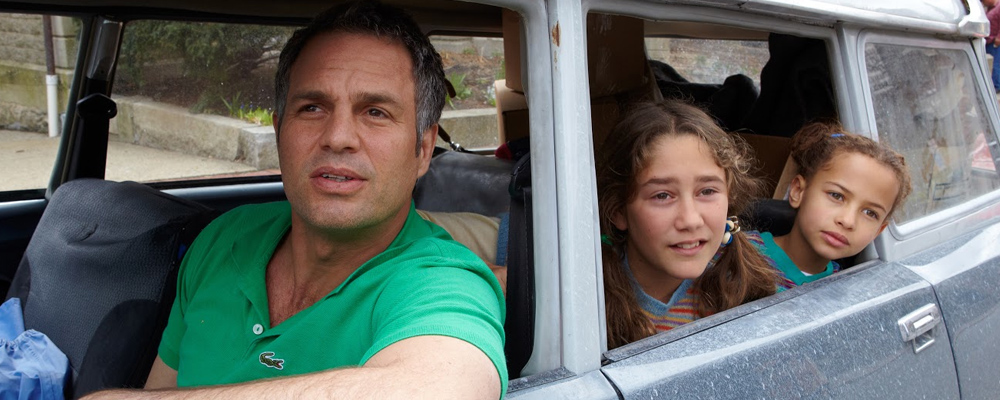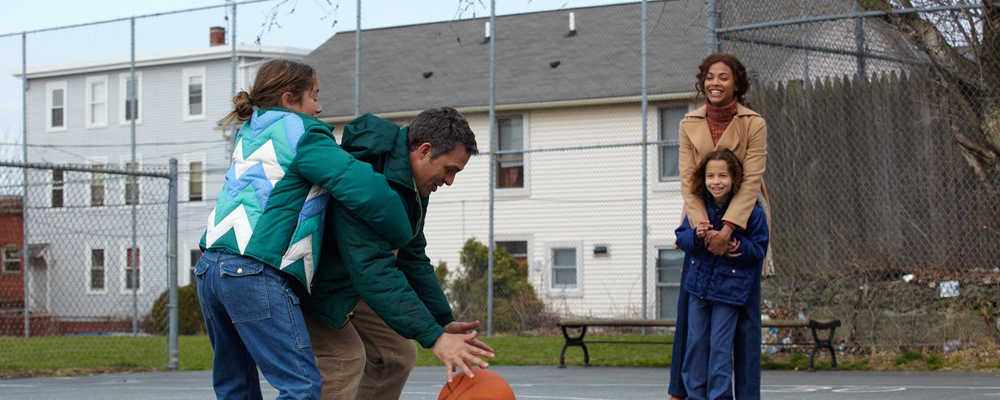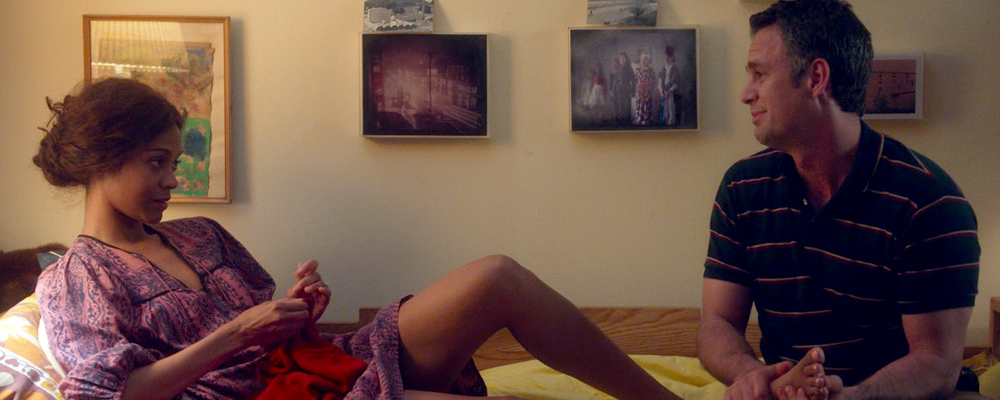Mark Ruffalo on Facing Mental Illness in ‘Infinitely Polar Bear’
Sandra Miska
Mark Ruffalo may be best known as the Hulk these days, but the actor will be returning to his indie roots this month in “Infinitely Polar Bear,” a deeply personal film based on writer/director Maya Forbes’s own childhood.
According to Ruffalo, it took several years for the film to be financed, which allowed him and onscreen wife Zoe Saldana more time to forge a bond. “Zoe and I were cast in it years before we ever made it. We did a reading and got to hang out early on, and, so that sorta grows in you a little bit… You sorta plant a seed, and you can go away and come back and it’s still there growing. What you don’t normally get in making a movie is this long period of gestation where you’re becoming very comfortable with the material and the characters. So we had that and it worked really well. By the time we got to rehearsals, which was ten days before we started shooting, we got to the rehearsal and we were already very comfortable with each other and really understood each other…”
Ruffalo stars at Cam Stuart, a man from a wealthy New England family who has suffered from mental illness for most of his adult life. “Infinitely Polar Bear” is told largely through the point of view of Cam’s oldest daughter Amelia (a character based on Forbes as a girl and played by her real-life daughter Imogene Wolodarsky), and through her we learn that Cam’s first mental breakdown took place when he was a student at Harvard, an episode that resulted in him roaming Harvard Square with a crazy beard. In 1967, he’s officially diagnosed as manic-depressive, and around this time, he marries Maggie (Saldana) an African-American woman from more humble origins. Maggie justifies this decision by telling her daughter “everyone was crazy back then.”
Cam’s illness is eventually identified as bipolar disorder. Ruffalo recently explained to Entertainment Voice how he went about preparing for the role. “The most important thing I felt like – and I’ve grown up with people who were bipolar and I know people who are bipolar – bipolar isn’t a person. The one thing that I thought was the most important thing was to capture who Cam was, essentially, and then lay the bipolar on to that. What bipolar is really is just the extremes of emotions, like, sliding scale of where those emotions go, right? Things just get way out on both sides, right? A lot of that was just written into the script, so Maya did a great job of helping me with that. But essentially, who is Cam? He’s just this kind of curious, childlike, poetical guy who I think had a great appetite for life and was very whimsical. …It’s all grounded in his deep, abiding love for his daughters and his belief in that family. What’s so touching about him is there’s nowhere else he’d rather be than with Maggie and those girls….”
Fast forward to 1978, and the Stuarts are parents to Amelia and her younger sister Faith (Ashley Aufderheide). Cam suffers another breakdown, and this time he bicycles outside wearing a Speedo in frigid weather, terrifying his wife and children. While he is in recovery, Maggie is forced to sell their suburban Boston home and move to the city, where she soon finds herself struggling to provide for their family. After she is awarded a scholarship to the MBA program at Columbia University, she makes a proposition to the newly recovered Cam: Take care of the girls in Boston while she goes to moves to New York for 18 months.
Maggie’s plight makes it painfully clear just how hard it was for a woman in those days, especially a mother, to make her own way. She is accused by Cam’s parents and others as having a purely feminist agenda. Sure, she wants her daughters to know that women can do anything, but her real motivation is to see her family out of poverty.
As for Cam, his illness prevents him from being, in Ruffalo’s words, “viable as a breadwinner.” His only source of income is his wealthy family, who fail to truly see him and his girls, treating them like a problem that will go away if they throw some money at it. In one of the films most painful scenes, he is shamed by his grandmother “Gaga” (Muriel Gould) after asking her to pay for his daughters to go to a private school, their current public school being subpar.
Ruffalo explained why this sort of behavior on the part of Cam’s family was baffling to him. “He was the son of this blue blood aristocracy, really. And that I didn’t understand, I’m blue collar. I joked with Maya, her family came over on the [Mayflower] a couple hundred years ago, and my family rowed over in a rowboat, like, 50 years ago. …So I didn’t understand it. I didn’t understand why the family didn’t help them. They had all these rules and ways of speaking and do’s and don’ts that didn’t have any rhyme or reason to them other than that was the way they did it.”
Despite all the hardships Cam faces (in addition to being bipolar he’s a hoarder and a chain smoker, two habits his daughters try desperately to break him out of), at the end of the day he is a loving father. Sure there are plenty of bumps along the way; and at times Cam acts more like an exasperated older brother than a responsible parent, getting into shouting matches with Amelia and Faith, and his neediness leads to a lot of embarrassing moments that are both humorous and hard to watch.
Although he often had to go outside of his comfort zone, Ruffalo claims that overall making the film was a pleasurable experience. “Yelling at [the girls]. Getting angry…,” he answered when asked what scenes were the hardest to film. “I have to say, mostly making this movie was a joy.” He did admit however that it was particularly challenging to film a scene in which he chases his wife on foot while she is in a moving car. “Running next to the car and getting all my lines out was also a tough scene. I didn’t want to have to do that more than four or five times, especially with a cigarette in my mouth.”
Eventually, the Stuart family finds their new normal, and one would have to be made of stone to not feel touched by the bond that forms between father and daughters. Any family that has ever dealt with major obstacles such as illness and/or a separation will be sure to relate.
“Infinitely Polar Bear” opens June 19 in Los Angeles and New York.




